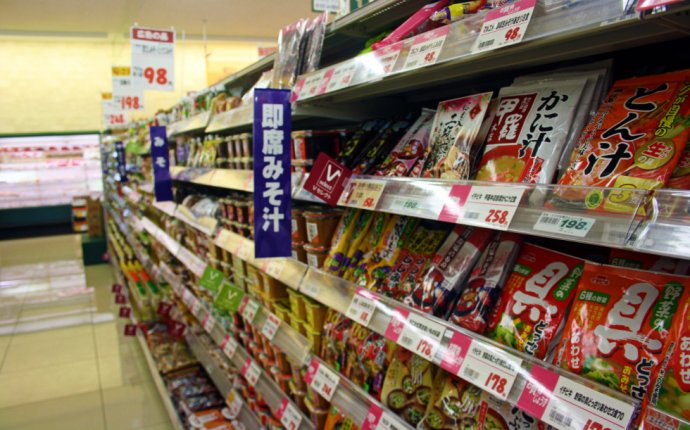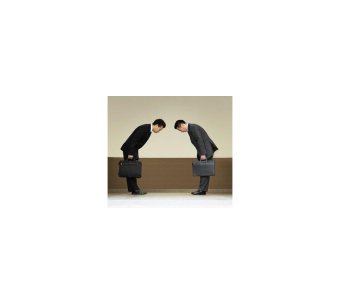
What are people like in japan?
 By Paula Gerhold TOKYO
By Paula Gerhold TOKYO
There isn’t a country in the world immune from stereotypes. All people form opinions about places and their inhabitants based on whatever they can glean from the food, tourism, and art of the culture. But not all sweeping generalizations have to be mean and unfounded.
The results on a thread on Madame Riri asking for the “perfect words to describe Japanese people” were surprisingly positive.
Here are the most common adjectives that Westerners chose when characterizing the people of Japan.
#1. Polite
Weighing in at number one was polite, or in Japanese “reigi tadashii.” Everyone has heard of the traditional Japanese bow used as a greeting during any given exchange. Though handshakes are perfectly common in Japan now, they more often than not come with a bow as well (or two or three). To the Western mindset, this style of address already seems much more polite than a simple handshake, high-five, or shoulder clap. Of course, the term “polite” in and of itself doesn’t only have a positive connotation. It’s possible to remain too polite and distant from a person, even if you’ve known them for quite a while.
#2. Punctual
Japan takes its time management very seriously. The Japan Railway (JR) and other connecting subways and train systems are well-known for their incredibly punctual schedules. As such, when there is a delay of even a minute, the whole system gets thrown off. Trains often issue late slips for passengers to take to their employers if their trains get delayed. After all, it leaves a very bad impression if you’re late to work.
#3. Kind
Unlike polite, which can have its downsides, kind is a genuinely positive word. In Japanese, words with similar connotations to the English phrase are “yasashii” or “omoyari no aru, ” meaning “thoughtful of others.” One sterling example of this is the custom of bringing a gift (usually food) when you visit another person’s house in Japan. This praiseworthy adjective was the third-most repeated term in the thread. That’s a winning score on anyone’s report card.
#4. Hard-working
A hard-worker or “hataraki-mono” is definitely a common word that classifies a Japanese mindset. In a culture where your job is supposed to take precedence over even your family at times, it’s unsurprising that foreign nationals would latch on to this particular description. There is even a word for “death by overwork” in Japanese (“karoshi”). It’s not uncommon for people to work several more hours after their contractual quitting time and, if you’re not a contract worker, that means that you aren’t paid for that overtime. Even if you have a “haken” (contracted job), it’s still considered rude to leave right on schedule.
#5. Respectful
Another tie-in with polite, respectful or “tanin ni taishite keii wo hyo suru” to loosely describe it in Japanese, is a mainly positive word. However, it can sometimes be associated with distance. With the epidemic of idolization in Japan, it’s also possible to take respect just a bit too far. Many Westerners find the concept of being so respectful to their elders a bit outside the norm. But in Japan, the older you get, the wiser you are considered and the more respectfully you’re treated. You’ll get in big trouble if you use informal language with a person older than you unless they’re family. Even then, some relatives still expect proper formal language befitting of their senior status.
#6. Shy
An overall impression of the citizens of Japan is that they’re very shy people, or “hazukashigariya”. This might be linked to their focus on politeness and respect. It is true that you don’t always hear a lot of outspoken Japanese people, especially tourists in foreign countries, but this might be for a different reason altogether. Many Japanese people worry about their foreign language skills and fear saying something incorrectly in English when they talk to native speakers. Conversation practice has only recently become a staple of English classes in Japan.
#7. Intelligent
There’s a definite stereotype of people from Asian countries being the brainy cream of the crop. Whether this is factually correct or not wasn’t technically relevant to the survey thread, but it certainly was a nice compliment. The Japanese word for intelligent is “kashikoi.” Incidentally, if you tried to say the katakana pronunciation of smart, “sumato, ” that actually means to be thin and attractive in Japanese. Not that they’re mutually exclusive adjectives, but be careful of confusing your Japanese friends by trying to call someone intelligent and accidentally calling them slim and sexy.
#8. Grouping
You know how girls are always said to travel in packs? Same goes for Japanese people, apparently. A word of advice to any aspiring English teachers in Japan is to make lots of group activities. Unlike America, where group work is often disliked because sharing the workload with other students inevitably means that it gets divided unequally, Japanese students thrive off of it. They prefer not to have to voice their opinions alone, but would rather share ideas with their peers and make a group decision. In a class of thirty Japanese kids, not many people want to stand up by themselves and read out of an English textbook. But put everyone in groups of three and make them read it in turns and you’ve got yourself an engaged classroom.









